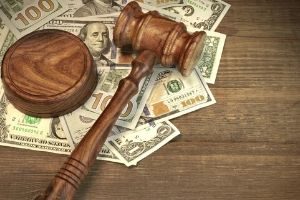 On January 1st, 2021, Congress voted to amend the Securities and Exchange Act of 1934 (Exchange Act), enacting into law the following provisions:
On January 1st, 2021, Congress voted to amend the Securities and Exchange Act of 1934 (Exchange Act), enacting into law the following provisions:
- The Securities and Exchange Commission (SEC) now has statutory authority to seek disgorgement in civil enforcement actions in federal district court;
- The statute of limitations in certain SEC actions is now tolled while defendants are outside of the United States; and
- The statute of limitations for scienter-based claims is now ten years, double the previous limitations period of five.
SEC’s Disgorgement Authority Recently Litigated in Supreme Court
Before these Congressional amendments, the SEC was not expressly authorized to seek disgorgement for securities laws violations. Historically, the SEC obtained disgorgement under the legal theory of “equitable relief,” but recent challenges in court questioned its validity.
Congress’ amendment of the Exchange Act was a direct response to recent Supreme Court decisions Kokesh and Liu, in which the Supreme Court questioned and ultimately limited the SEC’s ability to obtain disgorgement. The SEC publicly criticized these decisions, noting that since the Kokesh decision in 2017, the SEC has lost out on more than $1 billion in disgorgement – recovered funds that could have otherwise been partially awarded to SEC whistleblowers.
Benefits To Whistleblowers
All of these provisions benefit whistleblowers, as they collectively increase the SEC’s authority to prosecute securities fraud and recoup disgorgement — illegally obtained profits — from securities violators. The most notable aspect of these Congressional amendments is the significant enlargement of the time period in which the SEC can seek to obtain disgorgement, which will certainly lead to greater future financial recoveries by the SEC and, in turn, larger financial awards to whistleblowers.
Speak With An Experienced SEC Whistleblower Attorney At Silver Law Group Today
Our SEC whistleblower attorneys can help if you have information regarding securities fraud or other illegal conduct. The SEC investigates and prosecutes violations of the federal securities laws, including Ponzi schemes, false filings, and market manipulations.
Our lawyers have filed multiple SEC whistleblower claims for clients including Wall Street insiders, main street investors, and others who have original and timely information about fraud. Whistleblowers help the public interest by alerting authorities to conduct that is harmful to the public. When the SEC successfully prosecutes an investment fraud with the help of a whistleblower, the whistleblower is often entitled to a percentage of the funds recovered over $1 million.
We are ready to investigate your potential whistleblower tip and, if appropriate, take the actions necessary to file a claim your behalf to obtain a financial bounty. Contact us through our online form or at (800) 975-4345 for a confidential consultation. Our attorneys work on a contingency fee basis, which means it costs nothing to hire us and we have a strong financial incentive to get you the largest award as possible.
 SEC Whistleblower Lawyer Blog
SEC Whistleblower Lawyer Blog

